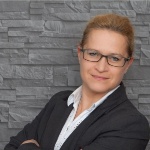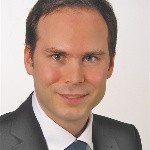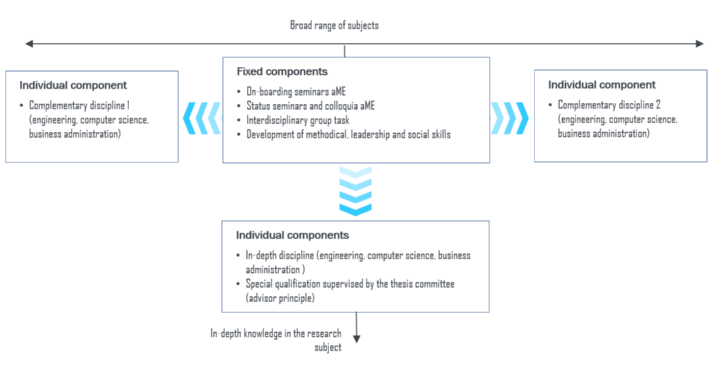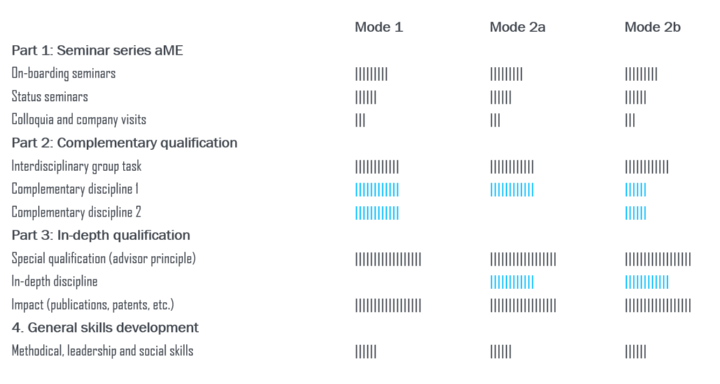Concept
The qualification program has been specifically developed for the multidisciplinary research topics at GSaME, which are defined at the interfaces between engineering, computer science and business administration. The program is designed to enable the doctoral students to carry out their research activities in an optimal manner, to increase their professional qualifications and to foster their individual strengths. Each doctoral student carries out his or her individual curriculum, wherein prior knowledge as well as the requirements of the research project are considered. The qualification program is carried out from the beginning of the doctorate and usually lasts three years.
Each doctoral student is supervised by a thesis committee. In addition to the main supervisor, this committee consists of at least one other scientific member of the graduate school. At the beginning of the research project, the candidate and his or her thesis committee agree on the content of the individual curriculum. The qualification program can be carried out in three different modes.
Parts of the qualification program
This seminar series includes on-boarding seminars for doctoral students in their first year. The on-boarding seminars form a block course with a duration of approximately ten days. In the course of these ten days, essential contents of the graduate school’s multidisciplinary fields of research are conveyed. Moreover, status seminars are held on a regular basis throughout the entire program. Within the status seminars the doctoral students report on and discuss the status of their research projects. Scientific colloquia – including seminars and workshops – as well as visits at companies form the third component of the seminar series aME.
Depending on the chosen mode, the doctoral candidates complete one or two complementary disciplines in the fields of engineering, computer science and/or business administration. A complementary discipline is a subject which has not been part of the candidate’s master program. The completion of one or two complementary disciplines is intended to convoy the doctoral students an insight into those disciplines. It should widen their horizon and allow them to view on their individual research topic from a broader perspective. In ideal circumstances, new aspects are incorporated into the research project.
This part of the qualification program also includes an interdisciplinary group task, in which doctoral students with different academic backgrounds jointly work on and present an interdisciplinary topic at the interface between their disciplines.
A successful completion of a doctorate requires the acquisition of specific expertise and a continuous development of knowledge and skills in the subject. In this part of the program, the doctoral students are expected to develop in-depth competencies that are directly linked to their research project. The formats in this part of the program are very diverse, e.g. conferences and symposia, seminars and workshops, lectures, scientific, methodological and instrumental training, literature studies, and scientific exchange with mentors. The details are determined and evaluated by the thesis committees (advisor principle).
Depending on the mode of the qualification program, an in-depth discipline has to be completed. In contrast to the complementary qualification, which aims at widening specialized knowledge, the in-depth discipline is intended to strengthen expert knowledge in the respective field of research.
This part of the qualification program does not address exclusive topics of aME, but rather aims at the development of competencies in scientific methods, management methods as well as career planning and personality development. The formats are usually seminars or workshops with a duration of one to three days.
Ihre Ansprechpartner

Gabriele Erhardt
Dr. rer. nat.Geschäftsführung

Thomas Ackermann
Dr.-Ing.Wissenschaftliche Koordination




